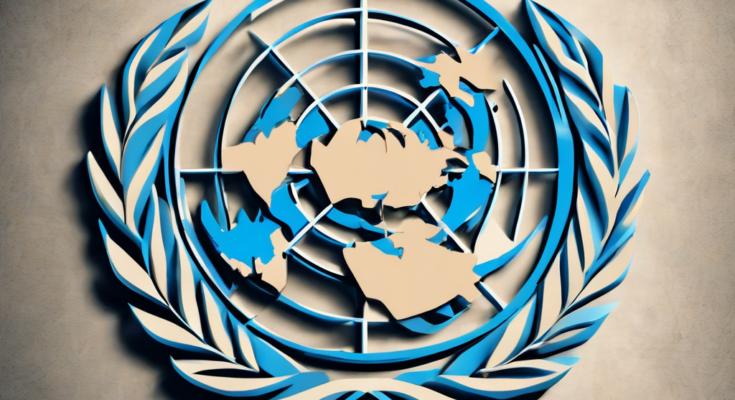Unraveling the Complexities of United Nations Donations: A Deep Dive into Funding, Allocation, and Impact
The United Nations (UN) relies heavily on voluntary contributions from member states, private donors, and other entities to fund its extensive range of humanitarian, development, and peacekeeping operations. Understanding the intricacies of UN donations is crucial for assessing its effectiveness, identifying potential challenges, and advocating for improved transparency and accountability.
Sources of UN Donations
The UN’s funding landscape is diverse and multifaceted. Key sources include:
- Member State Contributions: This forms the cornerstone of UN funding, with assessed contributions based on each member state’s capacity to pay, as determined by a formula factoring in economic indicators like gross national income. These contributions primarily support the UN’s regular budget, covering core administrative and operational costs.
- Voluntary Contributions: This constitutes a significant portion of UN funding, particularly for specific programs and agencies. Voluntary contributions are earmarked for particular projects or initiatives, offering donors greater control over their funding’s application. This flexibility allows for targeted responses to specific crises or development priorities but can also lead to funding imbalances and unpredictability.
- Private Sector Donations: Corporations, foundations, and individuals increasingly contribute to UN activities, often channeling their funding through specific agencies or programs aligned with their philanthropic goals. This source of funding offers important diversification but requires careful management to ensure alignment with UN principles and avoid conflicts of interest.
- Multilateral and Bilateral Development Agencies: Many international development organizations and national governments contribute directly to UN programs and agencies, often leveraging their own expertise and resources to achieve shared development objectives. This collaboration enhances the UN’s capacity and reach, but necessitates coordination and alignment of strategies.
Allocation of UN Donations
The allocation of UN donations is a complex process, varying significantly based on the source of funding and its intended purpose. Several key factors influence this process:
- Regular Budget Allocation: Assessed contributions are allocated according to the UN’s approved budget, ensuring core functions are funded. This budget undergoes rigorous scrutiny and approval processes by the General Assembly, maintaining a degree of transparency and accountability.
- Programmatic Allocation: Voluntary contributions are often earmarked for specific programs or agencies, directly influencing their funding levels. This targeted funding can expedite responses to emergencies but may create uneven distribution across UN activities and agencies.
- Agency-Specific Allocation: Individual UN agencies, such as UNICEF, UNHCR, and UNDP, receive funding based on their mandate, program proposals, and donor preferences. Each agency has internal mechanisms for allocating its received funding to various projects and programs.
- Needs-Based Allocation: In humanitarian emergencies, funding decisions are often driven by the immediate needs on the ground, necessitating rapid response and efficient allocation. However, this approach can be challenging in complex contexts with multiple competing needs.
- Geographic Allocation: Funding allocation decisions are sometimes influenced by geographic considerations, aiming to address critical needs in specific regions or countries. However, this approach can lead to uneven distribution if not carefully considered in relation to broader development goals.
Challenges in UN Donations
The UN faces several significant challenges related to donations:
- Funding Gaps: Consistent funding gaps hamper the UN’s ability to effectively implement its mandates. The reliance on voluntary contributions leads to unpredictability, making it difficult to plan long-term strategies and achieve sustainable development goals.
- Earmarking and Donor Influence: Earmarked contributions, while offering flexibility, can potentially restrict the UN’s ability to prioritize needs based on objective assessments, potentially leading to inefficient allocation of resources. This also raises concerns about undue influence by donors.
- Transparency and Accountability: Ensuring transparency and accountability in the use of donations is paramount. Challenges in tracking funds, monitoring project implementation, and reporting results hinder the assessment of impact and impede public trust.
- Coordination and Harmonization: Coordinating various funding streams and ensuring alignment between different UN agencies and programs is crucial for avoiding duplication of efforts and maximizing impact. Improving coordination mechanisms is essential.
- Bureaucracy and Administrative Costs: The UN’s administrative processes can sometimes be complex and costly, potentially reducing the proportion of donations reaching intended beneficiaries. Streamlining procedures and enhancing efficiency is necessary.
Impact of UN Donations
UN donations have a profound impact globally across diverse sectors:
- Humanitarian Aid: Donations support critical humanitarian interventions, providing emergency relief to populations affected by natural disasters, conflict, and disease outbreaks.
- Development Assistance: Funding supports development programs aimed at reducing poverty, improving health and education outcomes, and promoting sustainable economic growth.
- Peacekeeping Operations: Donations contribute to the financing of peacekeeping missions, maintaining international peace and security in conflict-affected regions.
- Human Rights Promotion: Funding supports efforts to protect and promote human rights globally, advocating for justice, equality, and dignity.
- Climate Action: Donations are increasingly channeled towards climate change mitigation and adaptation, supporting efforts to address this global challenge.
Improving UN Donations
Several strategies can enhance the effectiveness of UN donations:
- Increased Predictability of Funding: Exploring mechanisms to increase the predictability of core funding, potentially through reforms to the assessed contribution system, is essential for long-term planning and program sustainability.
- Reduced Earmarking: Promoting less earmarking of voluntary contributions would allow greater flexibility for the UN to prioritize needs based on objective assessments and to address emerging crises effectively.
- Enhanced Transparency and Accountability: Strengthening transparency and accountability mechanisms, including improved data collection, reporting, and audit processes, is vital for building public trust and ensuring efficient use of funds.
- Improved Coordination and Harmonization: Strengthening collaboration and coordination between UN agencies, improving data sharing, and implementing standardized reporting frameworks will enhance efficiency and effectiveness.
- Strengthened Partnerships: Forging stronger partnerships with governments, civil society organizations, and the private sector can leverage additional resources and expertise, expanding the reach and impact of UN programs.
- Innovative Funding Mechanisms: Exploring innovative funding mechanisms, such as impact investing and blended finance, can attract new sources of funding and enhance the sustainability of UN initiatives.
Conclusion (Not included as per instructions)



